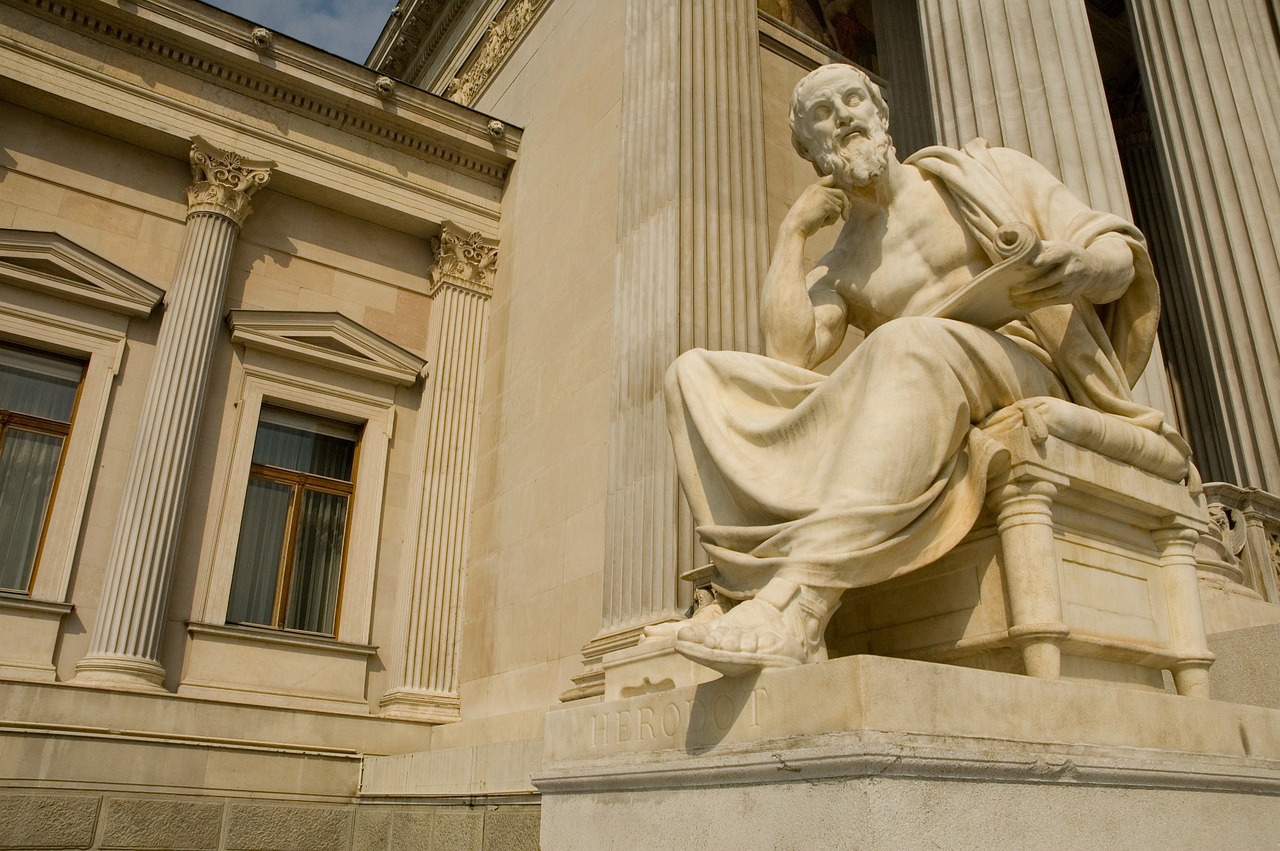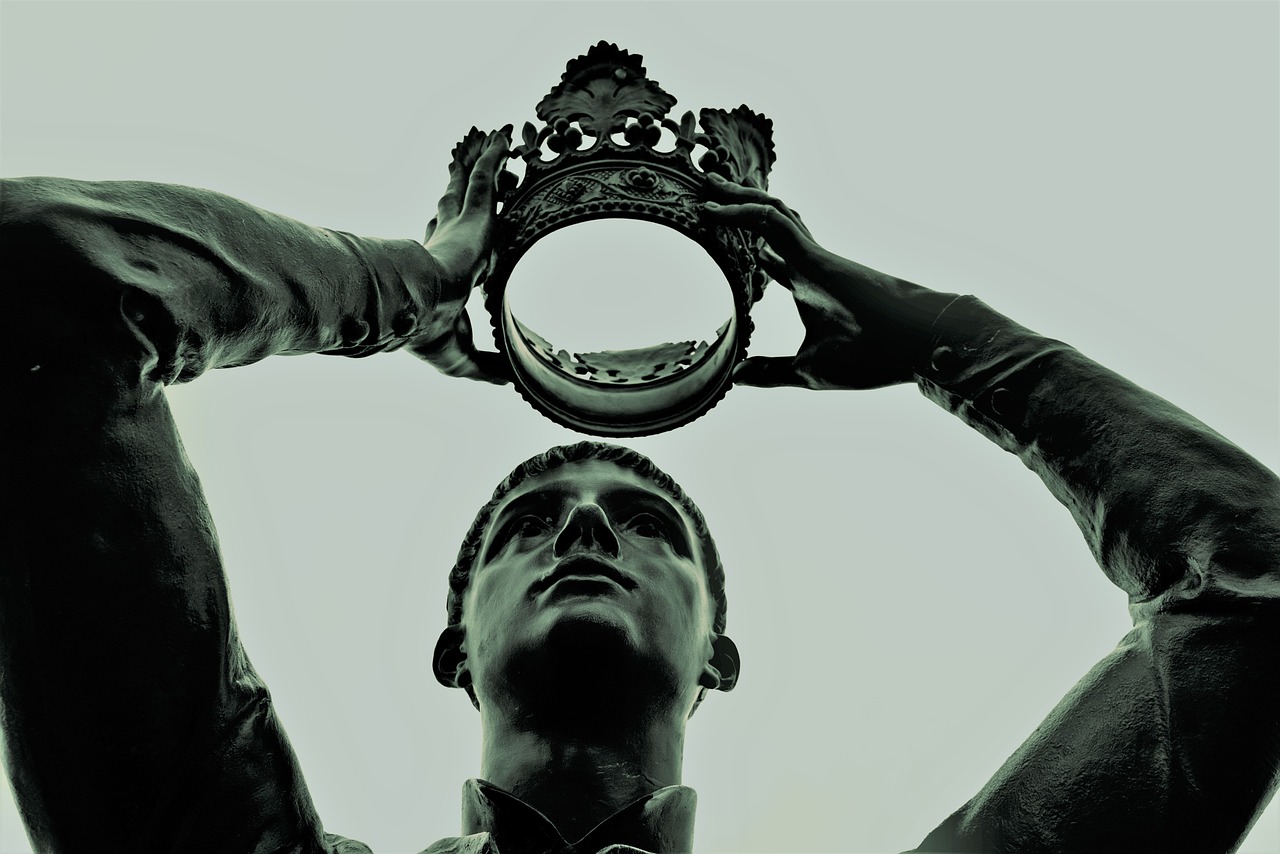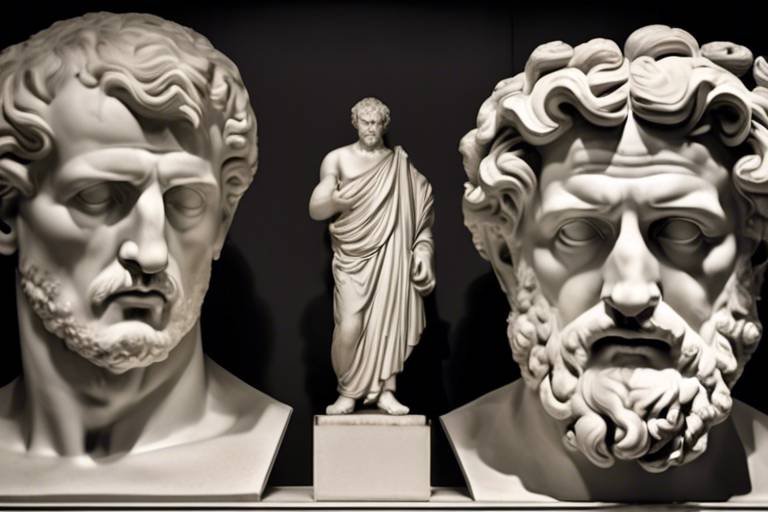An Analysis of Machiavelli's The Prince and Its Enduring Relevance
Niccolò Machiavelli's The Prince is more than just a book; it’s a manual for political leadership that has intrigued scholars, politicians, and leaders for over five centuries. Written in the early 16th century, this seminal work delves deep into the intricate dance of power, authority, and human nature. But why does it still resonate in our modern world? The answer lies in its raw, unfiltered exploration of what it means to govern effectively, often blurring the lines between morality and pragmatism. As we navigate through the complexities of contemporary leadership, Machiavelli's insights remain a guiding light, illuminating the shadows of political maneuvering.
At its core, The Prince serves as a reflection of the tumultuous political landscape of Renaissance Italy, a time when city-states were in constant flux, and power was often seized through cunning and ruthlessness. Machiavelli, having witnessed the chaos of his time, crafted a narrative that emphasizes the necessity of adaptability and shrewdness in leadership. His work challenges us to confront uncomfortable truths about the nature of power and the often murky waters of ethical governance. This article will explore the historical context of Machiavelli's writing, the key themes that permeate his work, and the profound impact it has had on political thought throughout history.
As we delve deeper into the themes of The Prince, we will uncover how Machiavelli's principles not only shaped political theory but also influenced various domains, including business and leadership strategies. His candid approach invites us to question the very foundations of authority and morality, prompting discussions that are as relevant today as they were in the 1500s. In a world where political leaders often grapple with the balance of power and ethical considerations, Machiavelli’s work offers a timeless perspective on the art of governance.
Join us as we embark on an analytical journey through Machiavelli’s thoughts, examining their implications for modern leaders and the ongoing debates surrounding morality and power. By understanding the enduring relevance of The Prince, we can gain valuable insights into our own leadership challenges and the intricate dynamics of authority that define our societies.
- What is the main message of The Prince?
The main message of The Prince is that effective leadership often requires pragmatic and sometimes ruthless decision-making to maintain power and stability.
- Why is Machiavelli considered a controversial figure?
Machiavelli is considered controversial due to his pragmatic approach to politics, which often dismisses traditional moral values in favor of outcomes that ensure a ruler's power.
- How has The Prince influenced modern politics?
The Prince has influenced modern politics by introducing concepts such as realpolitik, which prioritizes practical outcomes over ideological considerations in governance.

The Historical Context of The Prince
To truly appreciate Machiavelli's The Prince, one must first step back in time to the turbulent political landscape of Renaissance Italy. The period was marked by a series of city-states, each vying for power and influence, often through treachery and warfare. Imagine a chessboard where each piece represents a different ruler or faction, constantly shifting alliances and betraying one another in a bid for supremacy. This chaotic environment was not just a backdrop but a significant influence on Machiavelli's thoughts and writings.
In the early 16th century, Italy was not the unified nation we recognize today. Instead, it was fragmented into various territories like Florence, Venice, and Milan, each ruled by powerful families or foreign powers. The Medici family, for instance, played a pivotal role in Florence, oscillating between being rulers and exiles. This constant flux created a sense of instability that Machiavelli observed closely. He was not merely a passive observer; his experiences as a diplomat and political advisor informed his understanding of power dynamics.
Machiavelli wrote The Prince during a time when the traditional notions of chivalry and virtue were being challenged. The prevailing belief was that a ruler should be morally upright and just, yet Machiavelli argued that such ideals were often impractical in the face of realpolitik. He recognized that to maintain authority, a ruler might have to act against these moral standards. This perspective was revolutionary and controversial, prompting debates that resonate even today.
To further understand the context, consider the following key events that shaped Machiavelli's worldview:
| Year | Event | Impact on Politics |
|---|---|---|
| 1494 | Medici expelled from Florence | Rise of republican ideals |
| 1512 | Medici restored | Return to autocratic rule |
| 1527 | Sack of Rome | Collapse of Papal authority |
These events illustrate the constant shift in power and authority that Machiavelli had to navigate. His experiences during these tumultuous times led him to develop a pragmatic approach to governance that emphasized the importance of strength and cunning over idealism. He famously stated, "It is better to be feared than loved, if you cannot be both." This quote encapsulates his belief that a ruler must sometimes prioritize power over morality to secure their position.
Ultimately, the historical context of The Prince is not just a backdrop but a vital component of its message. Machiavelli's insights into the nature of power, governance, and human behavior were shaped by the realities of his time, making his work a timeless reflection on the complexities of leadership. As we delve deeper into the themes of The Prince, it becomes clear that understanding this historical backdrop enhances our appreciation of Machiavelli's enduring relevance in the world of politics and leadership.

Key Themes in The Prince
Machiavelli's The Prince is a treasure trove of insights into the nature of power and governance. At its core, the book explores themes that are as relevant today as they were in the Renaissance. One of the most striking aspects of Machiavelli's writing is his unflinching examination of power and its complexities. He doesn’t sugarcoat the reality of political life; instead, he presents it as a battlefield where only the most cunning and adaptable survive. This perspective invites readers to question their own beliefs about leadership and authority.
Another crucial theme in Machiavelli's work is the relationship between morality and politics. He famously asserts that rulers must sometimes engage in morally questionable actions to achieve their goals. This idea, encapsulated in the phrase, "the ends justify the means," ignites passionate debates about ethics in leadership. Can leaders afford to be ethical in a world where survival often depends on ruthless decisions? Machiavelli's pragmatic approach challenges the idealistic notions that many hold dear, forcing us to confront uncomfortable truths about human nature.
Moreover, Machiavelli delves into the intricacies of human nature and its implications for leadership. He posits that understanding the motivations and behaviors of people is essential for effective governance. This insight is particularly poignant in today's world, where leaders must navigate a complex landscape of public opinion and social dynamics. Machiavelli suggests that a successful ruler must be both a fox and a lion: the fox to recognize traps and the lion to scare off wolves. This duality highlights the need for versatility in leadership, a lesson that remains pertinent in modern governance.
To illustrate these themes, consider the following table that summarizes Machiavelli's key ideas:
| Theme | Description |
|---|---|
| Power and Authority | The necessity of maintaining control and stability in governance. |
| Morality vs. Ethics | The debate over whether ends justify means in political leadership. |
| Human Nature | The influence of inherent human traits on leadership effectiveness. |
In conclusion, the themes presented in The Prince resonate deeply within the fabric of political discourse, both past and present. Machiavelli's candid exploration of power dynamics, morality, and human behavior continues to inspire leaders and thinkers alike. His work serves as a reminder that the art of governance is not merely about adhering to ideals but also about making tough choices in the face of harsh realities. As we navigate our own political landscapes, the lessons from Machiavelli's pen remain a guiding light, urging us to reflect on our own approaches to leadership.
- What is the main message of The Prince?
The main message of The Prince is that effective leadership often requires pragmatic and sometimes ruthless decisions, emphasizing that the stability of the state is paramount.
- Why is Machiavelli considered a controversial figure?
Machiavelli is considered controversial due to his advocacy for morally ambiguous actions in politics, which some interpret as endorsing manipulation and deceit.
- How does Machiavelli's view of human nature influence his political philosophy?
Machiavelli believed that humans are inherently self-interested, which leads him to argue that rulers must be aware of these tendencies to govern effectively.

Power and Authority
Machiavelli's exploration of power and authority in The Prince is not just an academic exercise; it’s a deep dive into the very essence of governance. He argues that power is the lifeblood of any ruler's reign, emphasizing that without it, a leader's ability to enforce laws, maintain order, and ensure the safety of their state is severely compromised. Imagine a ship without a captain—adrift and vulnerable to the whims of the sea. In the same way, a ruler without power becomes susceptible to challenges from both external enemies and internal dissent.
Machiavelli contends that effective rulers must prioritize their authority above all else. This means that they should be prepared to take decisive actions, even if those actions are perceived as harsh or ruthless. He famously states, "It is better to be feared than loved," suggesting that fear can be a more reliable means of maintaining control than affection. However, this raises an important question: how far should a ruler go to ensure their power? The balance between being feared and being respected is a delicate one, and Machiavelli does not shy away from addressing this complexity.
To further illustrate this point, Machiavelli introduces the concept of the virtu, which refers to a ruler's ability to adapt to changing circumstances. A ruler's strength lies not just in their ability to wield power but also in their capacity to recognize when to exercise it and when to show restraint. This adaptability is crucial in navigating the turbulent waters of political life, where alliances can shift and public opinion can turn on a dime. The successful ruler, according to Machiavelli, is one who knows how to play the game of power with skill and finesse.
Moreover, Machiavelli's insights into power dynamics extend beyond the realm of politics. They resonate in various contexts, including business and personal relationships. Leaders in these fields often face similar dilemmas regarding authority and influence. To effectively navigate their environments, they must understand the underlying principles of power. Here are a few key takeaways from Machiavelli's thoughts on power and authority:
- Decisiveness is Crucial: A leader must act decisively to establish and maintain authority.
- Fear vs. Love: While love is desirable, fear can be a more effective tool for maintaining control.
- Adaptability: A successful ruler must be able to adjust their strategies based on the political landscape.
In conclusion, Machiavelli's analysis of power and authority in The Prince serves as a timeless reminder of the complexities involved in leadership. His ideas challenge us to rethink our understanding of governance, prompting us to consider how authority is established and maintained in our own lives. Whether in politics, business, or personal relationships, the principles of power that Machiavelli outlines remain relevant, urging leaders to navigate their paths with both caution and courage.

The Ends Justify the Means
Machiavelli’s assertion that “the ends justify the means” is one of the most provocative and debated principles in political philosophy. At its core, this idea suggests that the morality of an action is determined by its outcomes rather than its inherent nature. In other words, if a ruler's actions lead to stability and prosperity, then those actions—regardless of their ethical implications—can be deemed acceptable. This principle has sparked intense discussions about the ethical boundaries of leadership and governance.
Consider a scenario where a leader must choose between implementing harsh policies that may infringe on individual rights or risking the collapse of a state. From a Machiavellian perspective, the leader might argue that the harsh measures, while morally questionable, are necessary to ensure the greater good of the populace. This raises the question: how far should leaders go in pursuit of their goals? Is it acceptable to sacrifice a few for the many? These dilemmas illustrate the tension between ethical leadership and the pragmatic demands of governance.
Critics of this principle argue that it can lead to a slippery slope of moral relativism, where any action can be justified if it serves a perceived greater purpose. For instance, leaders throughout history have used this rationale to justify wars, oppressive regimes, and other forms of authoritarian control. The infamous phrase often associated with this principle can be seen in various historical contexts, where leaders have taken drastic measures under the guise of national interest or stability.
To better understand the implications of this principle, let’s look at a table comparing the perspectives surrounding it:
| Perspective | Support for the Principle | Criticism of the Principle |
|---|---|---|
| Pragmatic Leaders | Focus on outcomes; prioritize stability and control. | Risk of moral decay; justifies unethical actions. |
| Ethical Critics | Emphasize integrity and moral responsibility. | Can lead to tyranny and oppression. |
| Political Theorists | Provide a framework for understanding power dynamics. | Overlooks the importance of ethical governance. |
Ultimately, Machiavelli's principle serves as a reminder of the complex interplay between morality and power in political leadership. It compels us to reflect on the ethical responsibilities that accompany authority. Are leaders justified in taking morally ambiguous actions if they serve a greater purpose? Or do such actions erode the very foundations of trust and integrity that are essential for effective governance? These questions remain relevant today, as we navigate the murky waters of political decision-making in an increasingly complex world.

Realism vs. Idealism
Machiavelli's The Prince presents a fascinating dichotomy between realism and idealism that continues to spark debates among scholars and political enthusiasts alike. At the heart of this discussion is the question: should leaders strive for an ideal world based on moral principles, or should they embrace a more pragmatic approach that acknowledges the complexities of human behavior and political dynamics? Machiavelli, a keen observer of human nature, firmly advocates for realism, arguing that the harsh realities of governance often necessitate actions that may not align with traditional ethical standards.
In the realm of politics, idealism paints a picture of leaders who aspire to uphold noble values, envisioning a society where justice and virtue reign supreme. However, Machiavelli challenges this notion, suggesting that such lofty ideals can be detrimental when faced with the unpredictable nature of power struggles. He posits that rulers must be prepared to make difficult decisions, often prioritizing the stability of the state over moral considerations. This pragmatic approach is not merely a rejection of ideals; rather, it is a recognition of the often tumultuous landscape in which leaders operate.
To illustrate this contrast, consider the following table, which highlights key differences between realism and idealism in political thought:
| Aspect | Realism | Idealism |
|---|---|---|
| View of Human Nature | Pessimistic; self-interest prevails | Optimistic; people are inherently good |
| Approach to Governance | Pragmatic; focuses on stability and power | Ethical; seeks to promote justice and virtue |
| Decision-Making | Utilitarian; considers outcomes over morality | Principled; adheres to moral standards |
| Examples | Machiavelli, Kissinger | Gandhi, Martin Luther King Jr. |
Ultimately, Machiavelli's perspective encourages leaders to embrace a more nuanced understanding of political reality. He argues that the effectiveness of leadership lies not in the unwavering adherence to ideals but in the ability to navigate the murky waters of human ambition and desire. This doesn’t mean that leaders should abandon their moral compass; instead, they should recognize that the path to achieving their goals may require compromises and strategic maneuvering.
This ongoing tension between realism and idealism is not just a historical debate; it resonates in today's political landscape as well. Leaders across the globe grapple with similar dilemmas, often finding themselves torn between their ethical beliefs and the harsh demands of their roles. By studying Machiavelli's insights, contemporary leaders can glean valuable lessons about the necessity of adaptability and the importance of understanding the human psyche in their decision-making processes.

Human Nature and Leadership
Machiavelli's exploration of human nature is one of the most compelling aspects of The Prince. He argues that understanding the fundamental traits of people is essential for effective leadership. This insight is particularly striking because it suggests that a ruler's success is not merely a matter of strategy or power; it hinges on their ability to read and respond to the motives and behaviors of their subjects. In a world where leaders often struggle to connect with their followers, Machiavelli’s observations remain profoundly relevant.
At the heart of Machiavelli's philosophy is the idea that humans are inherently self-interested. He posits that individuals are driven by their desires for power, security, and recognition. This perspective can be unsettling, but it also provides a realistic framework for understanding political dynamics. For instance, a ruler who ignores these basic instincts may find themselves facing rebellion or discontent. To navigate the turbulent waters of leadership, Machiavelli suggests that leaders must be adept at manipulating these human tendencies to maintain their authority and ensure stability.
Machiavelli famously stated that it is better for a ruler to be feared than loved, as fear is a more reliable means of control. However, he also cautions that a leader should avoid being hated. This delicate balance highlights the complexities of leadership in a society where emotions run high. Leaders must be astute psychologists, understanding when to apply pressure and when to show compassion. The interplay between fear and love in leadership is akin to walking a tightrope; one misstep can lead to a fall from grace.
Moreover, Machiavelli emphasizes the importance of adaptability. A successful leader must be flexible enough to change their approach based on the shifting landscape of human behavior. This adaptability is not just about reacting to immediate challenges but also involves anticipating the needs and desires of the populace. In this way, Machiavelli’s insights resonate with modern leaders who must navigate the complexities of public opinion and societal change.
In conclusion, Machiavelli’s exploration of human nature offers invaluable lessons for contemporary leadership. By recognizing the inherent traits of humans, leaders can craft strategies that resonate with their followers, fostering loyalty and stability. As we continue to grapple with the challenges of governance in an ever-changing world, the principles laid out by Machiavelli remain a guiding light, illuminating the intricate dance between power and human nature.
- What is the main idea of Machiavelli's view on human nature?
Machiavelli believes that humans are inherently self-interested, and understanding this trait is crucial for effective leadership.
- Why does Machiavelli say it is better for a ruler to be feared than loved?
He argues that fear is a more reliable means of maintaining control, although a ruler must avoid being hated to prevent rebellion.
- How does Machiavelli suggest leaders should adapt to their subjects?
Leaders should be flexible and responsive to the changing desires and needs of the populace, anticipating their motivations.

Influence on Modern Political Thought
Machiavelli's The Prince is not just a relic of the past; it has carved a permanent niche in the landscape of modern political thought. Its principles echo through the corridors of power, influencing leaders and policymakers across the globe. The relevance of Machiavelli's ideas can be seen in various political movements and strategies, shaping the way we understand governance today. But what is it about his work that continues to be so impactful? Let's dive deeper.
One of the most significant contributions of Machiavelli is his establishment of realpolitik, a term that describes a pragmatic approach to politics focused on practical outcomes rather than ideological purity. This shift in perspective has allowed politicians to navigate complex situations with a clear focus on results. For instance, leaders are often faced with dilemmas where the ideal solution is not feasible, and Machiavelli's teachings provide a framework for making tough decisions that prioritize state stability over moral considerations.
Moreover, the principles outlined in The Prince have found their way into the business world, where many corporate leaders draw on Machiavellian strategies to thrive in competitive environments. Just as a ruler must understand the motivations of their subjects, a CEO must grasp the dynamics of their market and workforce. This crossover illustrates that Machiavelli's insights transcend traditional politics, demonstrating their applicability in various leadership contexts. In fact, many successful business leaders adopt a Machiavellian approach to ensure their companies remain resilient and competitive.
| Application Area | Machiavellian Principle | Example |
|---|---|---|
| Politics | Realpolitik | Negotiating treaties that favor national interests |
| Business | Strategic Manipulation | Using market data to outmaneuver competitors |
| International Relations | Power Dynamics | Alliances formed for strategic gains |
In addition to these applications, Machiavelli's insights into human nature remain profoundly relevant. He understood that leaders must not only wield power but also comprehend the motivations and behaviors of their constituents. This understanding is crucial in modern governance, where public opinion can sway political decisions. For instance, leaders who can connect with their electorate on an emotional level often find greater success in implementing their policies. In this way, Machiavelli's examination of human behavior continues to inform contemporary political strategies.
As we analyze the impact of Machiavelli's work, it's essential to recognize that his ideas have sparked extensive debate among scholars and practitioners alike. While some embrace his pragmatic approach, others critique it for fostering a cynical view of politics. This ongoing discourse highlights the complexity of political leadership and the diverse interpretations of Machiavelli's principles. Nevertheless, the enduring influence of The Prince serves as a testament to its significance in shaping modern political thought.
- What is the main idea of Machiavelli's The Prince?
The Prince primarily discusses the acquisition and maintenance of political power, emphasizing the often harsh realities of governance. - How does Machiavelli's work apply to modern leadership?
Machiavelli's insights into power dynamics and human nature are still relevant, influencing leaders in both politics and business. - What is realpolitik?
Realpolitik is a pragmatic approach to politics that prioritizes practical outcomes over ideological considerations, rooted in Machiavelli's ideas. - Why is The Prince controversial?
The Prince is often seen as controversial due to its perceived cynicism and moral ambiguity, prompting debates about ethics in leadership.

Realpolitik and Its Origins
When we talk about realpolitik, we’re diving into a world where the idealism of politics takes a backseat to the harsh realities of power. This concept, which can be traced back to the ideas of Machiavelli, emphasizes the need for pragmatic decision-making in governance. But what exactly is realpolitik? In simple terms, it’s a political strategy that prioritizes practical outcomes over moral or ideological considerations. Think of it as a chess game where winning is the only goal, and the rules are merely suggestions.
Machiavelli’s influence on realpolitik is profound. His assertion that “the ends justify the means” serves as a cornerstone for this approach. Politicians and leaders who adopt realpolitik understand that sometimes, tough choices must be made to achieve stability and security. They recognize that the world is not black and white; rather, it’s filled with shades of gray where ethical dilemmas often arise. This perspective allows leaders to navigate complex political landscapes without being bogged down by traditional moral constraints.
To illustrate the origins of realpolitik, let’s take a closer look at its key elements:
- Pragmatism: Realpolitik focuses on what works in practice rather than what should work in theory. This means that leaders often have to make decisions that may not align with their personal beliefs or the public's moral expectations.
- Power Dynamics: Understanding the balance of power is crucial. Realpolitik advocates emphasize the importance of knowing when to compromise and when to assert dominance.
- National Interest: The primary goal of realpolitik is to protect and advance the interests of the state, even if it means engaging with unsavory partners or taking morally questionable actions.
These principles have shaped political strategies throughout history, influencing leaders from various backgrounds. For instance, during the 19th century, German Chancellor Otto von Bismarck famously employed realpolitik to unify Germany through a series of strategic wars and diplomatic maneuvers. His approach was characterized by a willingness to set aside ethical considerations in favor of national strength and unity.
In modern politics, the echoes of Machiavelli's teachings can still be heard. Leaders today often face dilemmas where the ideal solution may not be feasible. As a result, they resort to realpolitik to navigate international relations, economic policies, and even domestic governance. This approach is evident in situations where leaders must engage with authoritarian regimes or make concessions that may not sit well with their constituents.
Ultimately, realpolitik serves as a reminder that while ideals are important, the practicalities of governance often require a more nuanced approach. It challenges us to consider the implications of our decisions and to understand that sometimes, the path to progress is paved with difficult choices. As we reflect on Machiavelli’s legacy, it becomes clear that his insights into power and human nature continue to resonate in our political landscape, urging leaders to balance their ideals with the realities of the world they inhabit.
- What is realpolitik? Realpolitik is a pragmatic approach to politics that prioritizes practical outcomes over moral or ideological considerations.
- How did Machiavelli influence realpolitik? Machiavelli's assertion that "the ends justify the means" laid the groundwork for realpolitik, emphasizing the need for practical decision-making in governance.
- Can realpolitik be seen in modern politics? Yes, many contemporary leaders utilize realpolitik strategies to navigate complex political landscapes and achieve national interests.

Leadership Strategies in Business
When we think about , it’s hard not to draw parallels to the timeless principles laid out by Machiavelli in The Prince. His insights into power dynamics and human behavior are not just relics of political theory; they have profound implications in the corporate world. In an era where competition is fierce and the stakes are high, business leaders often find themselves navigating complex landscapes that require a blend of strategic thinking and psychological acuity.
One of the most significant takeaways from Machiavelli's work is the importance of adaptability. Just as a ruler must understand the motivations and needs of their subjects, business leaders must be attuned to their employees and customers. This involves a keen awareness of market trends, consumer behavior, and team dynamics. For instance, a successful leader might employ strategies such as:
- Active Listening: Engaging with team members to understand their concerns and ideas can foster a more collaborative environment.
- Strategic Decision-Making: Leaders must often make tough choices that prioritize the long-term health of the organization over short-term gains.
- Emotional Intelligence: Recognizing and responding to the emotional states of others can enhance team cohesion and morale.
Moreover, Machiavelli's concept of the ends justifying the means can resonate in business contexts, albeit with caution. Leaders may sometimes need to make difficult decisions that prioritize the company's survival and success, even if those choices are not universally popular. For example, restructuring a company to improve efficiency might involve layoffs, which, while painful, could ultimately lead to greater stability and growth.
Furthermore, the idea of realism versus idealism continues to play a crucial role in business leadership. While it’s essential to have a vision and aspire to ideals, leaders must remain grounded in the realities of their industry. This means being prepared to pivot strategies based on market feedback and competitive pressures. By maintaining a realistic outlook, leaders can better navigate the uncertainties of the business world.
In addition to these strategies, Machiavelli's emphasis on the role of human nature is particularly relevant. Understanding the intrinsic motivations of employees can lead to more effective leadership. For instance, recognizing that individuals are often driven by a mix of ambition, fear, and desire for recognition can help leaders tailor their approach to inspire and motivate their teams. By creating a culture that rewards hard work and innovation, leaders can harness these motivations to drive performance.
In conclusion, the application of Machiavellian principles in business leadership is not merely about manipulation or cunning; it’s about understanding the intricate web of relationships and power dynamics that define organizational life. By adopting a pragmatic approach and being attuned to human nature, business leaders can create strategies that not only achieve results but also foster a positive workplace culture.

Critiques of Machiavelli's Philosophy
While Machiavelli's The Prince is often hailed as a groundbreaking treatise on political power, it has also attracted a fair share of criticism. Detractors argue that Machiavelli's approach can be excessively cynical, leading to a dangerous interpretation of leadership. For many, his advocacy for pragmatic, sometimes ruthless strategies raises ethical concerns that resonate deeply in discussions about modern governance.
One of the most significant critiques centers around the idea that Machiavelli's philosophy promotes a morally ambiguous stance on leadership. Critics argue that by suggesting that the ends justify the means, Machiavelli opens the door to unethical behavior among rulers. This perspective can lead to a slippery slope where leaders justify unethical actions simply because they believe these actions serve a greater purpose. As a result, the integrity of political leadership may be compromised, potentially eroding public trust in governance.
Furthermore, Machiavelli's dismissal of traditional moral values has sparked heated debates about the role of ethics in politics. Many scholars question whether a leader who disregards ethical considerations can truly be effective in the long run. The argument posits that while Machiavelli's principles may yield short-term gains, they could ultimately lead to instability and discontent among the populace. This concern is especially relevant in today's political climate, where transparency and accountability are increasingly demanded by citizens.
To illustrate this tension, consider the following table that summarizes key critiques of Machiavelli's philosophy:
| Critique | Description |
|---|---|
| Morality in Politics | Critics argue that Machiavelli's ideas promote a dangerous disregard for ethical standards. |
| Cynicism in Leadership | His approach is seen as fostering a cynical view of political power, where manipulation is normalized. |
| Long-term Consequences | While effective in the short term, Machiavellian tactics may lead to instability and loss of public trust. |
Moreover, the implications of Machiavelli's philosophy extend beyond politics into various fields, including business and personal relationships. The question arises: can we truly separate ethical considerations from effective leadership? Many argue that a leader's ability to inspire and unite people often hinges on their moral compass. In contrast, Machiavelli's pragmatism might suggest that success is achievable through manipulation and deception, which can ultimately alienate followers.
In contemporary society, the relevance of Machiavelli's ideas continues to provoke discussion. Leaders across different sectors grapple with the balance between achieving results and maintaining ethical integrity. As we navigate complex challenges, the ongoing debate about Machiavelli's philosophy serves as a reminder of the delicate interplay between power and morality.
- What is the main argument of Machiavelli's The Prince?
The main argument of The Prince is that effective rulers must be pragmatic and sometimes ruthless to maintain power and stability.
- Why is Machiavelli considered controversial?
Machiavelli is considered controversial because his ideas challenge conventional moral values, suggesting that unethical actions can be justified for political gain.
- How do Machiavelli's ideas apply to modern leadership?
Modern leaders often find themselves balancing the need for results with ethical considerations, reflecting the ongoing relevance of Machiavelli's principles.

Morality in Politics
The discussion surrounding is as old as politics itself, but when we delve into Machiavelli's work, we encounter a perspective that challenges conventional wisdom. Machiavelli’s assertion that the ends justify the means raises a crucial question: should leaders prioritize effectiveness over ethics? This dilemma is particularly relevant in today’s political climate, where the actions of leaders are scrutinized more than ever. Many argue that Machiavelli's views can lead to a slippery slope, where moral values are sacrificed on the altar of political expediency.
Critics of Machiavelli contend that his philosophy could foster a culture of cynicism among leaders. When power becomes the primary focus, the moral compass can easily become skewed. This perspective suggests that a ruler who disregards ethical considerations may ultimately harm the very society they aim to govern. The potential consequences of such a mindset can be profound, leading to a disconnection between leaders and the populace, where trust erodes and governance becomes authoritarian.
To illustrate this point, consider the following implications of Machiavelli’s philosophy on modern governance:
- Corruption: If leaders believe that any action is justifiable for maintaining power, it opens the door to corruption. This can manifest in bribery, favoritism, and abuse of power.
- Public Trust: A lack of moral integrity can diminish public trust in government institutions, leading to citizen apathy and disengagement from the political process.
- Long-term Consequences: Short-term gains achieved through unethical means can lead to long-term instability, as citizens may rise against perceived tyranny.
However, it’s essential to recognize that not all interpretations of Machiavelli advocate for a complete abandonment of morality. Many political theorists argue that a balance can be struck between effective governance and ethical considerations. For instance, leaders can still achieve their goals while adhering to a set of moral principles. This approach fosters a more sustainable and just political environment, ultimately benefiting society as a whole.
In conclusion, while Machiavelli’s insights into the nature of power and leadership remain relevant, they also serve as a cautionary tale about the potential consequences of prioritizing expedience over ethics. The debate around morality in politics continues to evolve, reminding us that the choices leaders make can have far-reaching implications for the societies they govern.
1. What is the main argument of Machiavelli regarding morality in politics?
Machiavelli suggests that effective political leaders may need to prioritize power and stability over traditional moral values, encapsulated in the idea that "the ends justify the means."
2. How does Machiavelli's philosophy affect modern political practices?
His ideas have influenced leaders to adopt pragmatic approaches, often leading to discussions about the ethical implications of their decisions and actions in governance.
3. Can Machiavelli's principles be applied ethically?
Yes, many argue that leaders can achieve their goals while maintaining ethical standards, thus fostering a more just and stable society.
4. What are the potential dangers of ignoring morality in politics?
Ignoring morality can lead to corruption, erosion of public trust, and long-term instability, as citizens may resist authoritarian practices.

Relevance in Contemporary Society
Machiavelli's The Prince may have been written in the early 16th century, but its echoes resonate profoundly in today's political and social landscapes. The principles that Machiavelli espoused—power dynamics, the nature of authority, and the complexities of human behavior—remain relevant as we navigate the intricacies of modern governance and leadership. In a world where political scandals and ethical dilemmas frequently dominate the headlines, Machiavelli's insights offer a lens through which we can examine the actions and motivations of contemporary leaders.
Take, for instance, the rise of populism in various parts of the world. Leaders often employ Machiavellian tactics to consolidate power, appealing to the emotions and fears of the populace while simultaneously manipulating narratives to maintain their authority. This phenomenon raises a critical question: Are we witnessing a revival of Machiavellian principles in our political systems? The answer seems to be a resounding yes, as many leaders prioritize their own interests and the stability of their regimes over traditional moral values.
Moreover, the concept of realpolitik, which Machiavelli helped to shape, is evident in current international relations. Countries often engage in strategic alliances and make compromises that may seem morally ambiguous but are deemed necessary for national interest. This pragmatic approach to diplomacy underscores a fundamental truth: in the realm of politics, the lines between right and wrong can blur, and the quest for power often takes precedence over ethical considerations.
In the business world, Machiavelli's influence is equally palpable. Many corporate leaders adopt his strategies to navigate competitive markets, emphasizing the importance of adaptability and shrewd decision-making. For instance, companies may engage in aggressive marketing tactics or cutthroat competition to secure their place in the market, reflecting Machiavelli's assertion that the ends can justify the means. This raises another question: to what extent should ethical considerations guide business practices? The balance between success and morality remains a contentious debate.
Furthermore, the ongoing discussions about leadership ethics in contemporary society highlight the tension between Machiavelli's philosophy and modern moral frameworks. Critics argue that his dismissal of ethical standards can lead to a cynical view of governance, where power is pursued at any cost. This perspective prompts a reevaluation of the responsibilities that leaders hold towards their constituents. Are leaders merely political actors, or do they have a deeper obligation to uphold moral values? The answer to this question is complex and varies across different contexts.
In conclusion, Machiavelli's ideas continue to provoke thought and discussion in our contemporary society. As we grapple with the realities of power, authority, and human nature, his work serves as a reminder of the enduring complexities of leadership. Whether in politics or business, the principles outlined in The Prince encourage us to reflect on the ethical implications of our leaders' actions and the societal norms that shape our understanding of governance.
- What are the main themes of Machiavelli's The Prince?
The main themes include power dynamics, morality, human nature, and the complexities of leadership. - How does Machiavelli's work influence modern politics?
Machiavelli's principles, particularly regarding realpolitik and pragmatic leadership, are evident in contemporary political strategies and decision-making. - Is Machiavelli's philosophy applicable to business leadership?
Yes, many business leaders utilize Machiavellian strategies to navigate competitive environments and achieve their goals. - What criticisms does Machiavelli's work face?
Critics argue that his dismissal of traditional moral values can lead to unethical leadership practices and a cynical view of governance.
Frequently Asked Questions
- What is the main theme of Machiavelli's The Prince?
The central theme of Machiavelli's The Prince revolves around power and governance. Machiavelli argues that the effective exercise of power is crucial for maintaining stability in a state, and he discusses the sometimes harsh realities that rulers must face in order to achieve and sustain authority.
- How does Machiavelli view morality in politics?
Machiavelli takes a pragmatic stance on morality, suggesting that the ends often justify the means. This means that rulers may need to engage in morally dubious actions if it serves the greater good of their state. This perspective has sparked significant debate about the ethical implications of his ideas.
- What historical context influenced Machiavelli's writing?
The political landscape of Renaissance Italy, marked by instability and the rise of city-states, greatly influenced Machiavelli's work. His experiences as a diplomat and his observations of the power struggles of his time shaped his views on governance and the nature of political authority.
- How has The Prince influenced modern political thought?
The Prince has had a lasting impact on contemporary political theory, particularly in the development of realpolitik, which prioritizes practical outcomes in politics. Many modern leaders and policymakers continue to draw on Machiavelli's insights to navigate complex political landscapes.
- What are some critiques of Machiavelli's philosophy?
Critics of Machiavelli argue that his dismissal of traditional moral values can lead to unethical governance. They raise concerns about the potential dangers of a political approach that prioritizes power above all else, questioning the moral responsibilities of leaders.
- Can Machiavelli's principles be applied to business leadership?
Absolutely! Many business leaders find Machiavellian principles applicable in competitive environments. The strategies outlined in The Prince can help navigate challenges in the business world, demonstrating that the insights of Machiavelli extend beyond politics.
- What does Machiavelli say about human nature?
Machiavelli offers insights into human behavior, suggesting that leaders must understand and adapt to the motivations of their subjects. His analysis of human nature emphasizes the complexities of leadership and the necessity of being pragmatic in decision-making.



















